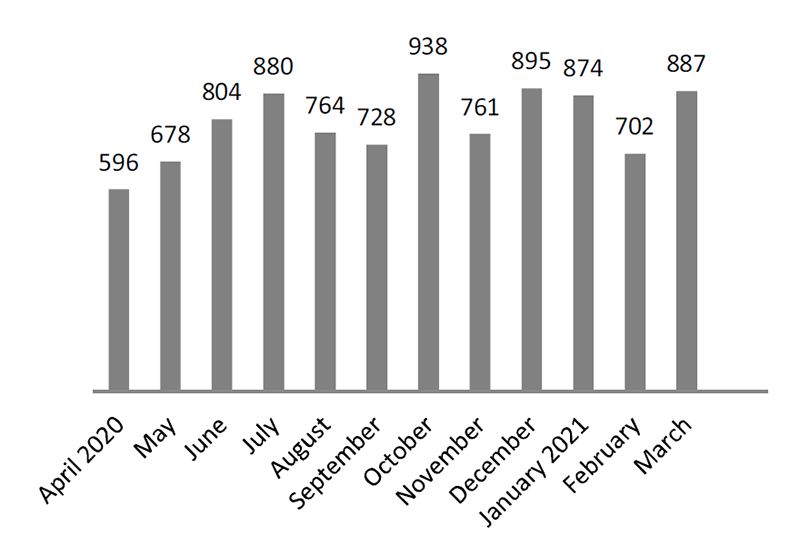Annual Report 2020
Rare Cancer Center
(NCCH) Akira Kawai, Yoko Katoh, Yoshitaka Narita, Yasuji Miyakita, Shigenobu Suzuki, Seiichi Yoshimoto, Kan Yonemori, Tatsunori Shimoi, Kazuki Sudo, Yasushi Goto, Yoshitaka Honma, Takuji Okusaka, Chigusa Morizane, Susumu Hijioka, Motokiyo Komiyama, Aiko Maejima, Tomoyasu Kato, Mituya Ishikawa, Eisuke Kobayashi, Shintaro Iwata, Naoya Yamazaki, Kenjiro Namikawa, Koji Izutsu, Tatsuya Suzuki, Wataru Munakata, Chitose Ogawa, Ayumu Arakawa, Miyuki Sone, Hiroshi Igaki, Akihiko Yoshida, Noboru Yamamoto, Toshio Shimizu, Koichi Ichimura, Tadashi Kondo, Takahiro Higashi, Tomoko Takayama, Taro Shibata, Takuro Sakurai,
(NCCHE) Naoto Gotohda, Tetsuo Akimoto, Ako Hosono, Toshihiko Doi, Yoichi Naito, Junya Ueno
Introduction
The Rare Cancer Center was established in June 2014 as a multidisciplinary team to address the innate problems associated with rare cancers. Rare cancers are defined as those with an incidence < 6/100,000/year. Although each subtype of rare cancer is rare by itself, it accounts for up to 15% of all new cases diagnosed as cancer when the number of each subtype of rare cancer is combined. Information on rare cancers has been lacking to date, and this background make it difficult for clinicians to diagnose rare cancer correctly and to treat patients adequately. Another problem is the lack of experienced expertise in the field of rare cancers.
The Team and What We Do
The Rare Cancer Center has been playing a central role in the management of rare cancers in the National Cancer Center (NCC).
The mission statements of the Rare Cancer Center are as follows:
I. Establishing a vital network for diagnosis and treatment for rare cancers.
II. Investigating the problems associated with rare cancers, addressing the issues and making proposals as medical professionals for rare cancers.
To enable the Rare Cancer Center to play its role, a total of 45 medical doctors, researchers, nurses and medical staff dealing with rare cancers have joined as members of the center. Each member of the Rare Cancer Center provides specialized and high-quality medical care to patients with rare cancers, and promotes researches of rare cancers by taking a multidisciplinary approach.
Research activities
A rare cancer hotline has been established to provide appropriate information and medical support for rare cancer patients, and one full-time nurse is available. The number of new patients coming for consultation in 2020 was 9,507 (Figure 1). By disease, sarcoma accounted for approximately 30%, followed by GIST, cancer of unknown primary, and malignant melanoma.
To disseminate information on rare cancers, a website for patients and families of rare cancers (https://www.ncc.go.jp/jp/rcc/index.html) has been opened, and 300 new entries were added in 2020. In addition, information is disseminated via Facebook to provide timely information, and 370 posts were made in 2020.
Figure 1. The number of consultations via the Rare Cancer Hotline in 2020

Since 2017, "Rare Cancer Meet the Expert", a seminar on rare cancers, has been held for patients and their families; in 2020, the seminar could not be held due to COVID-19, and only video streaming was available. The total view count for all videos was 318,193.
We held 7 seminars on rare cancer treatment together with 5 patient advocacy groups.
We promoted cancer awareness month covering four rare cancers, including sarcoma and lymphoma, in collaboration with the patient advocacy group.
In the "Research on understanding the status of medical treatment and development of infrastructure to improve the outcomes of rare cancers" funded by the Cancer Research and Development Fund, members of the Rare Cancer Center took the lead in conducting research on understanding the status of medical treatment for rare cancers, information dissemination, and education. Also, in the "Research on developing a network providing cancer information and consultation support for rare cancers" funded by the Ministry of Health, Labour and Welfare Grants-in-aid for Scientific Research program, the Rare Cancer Center worked for maintaining the network of hospitals treating rare cancers in line with the situations of each region in Japan.
In addition, in collaboration with the National Cancer Center Research Institute, we conducted research on the development of xenografts and establishment of cell lines from clinical specimens of rare cancers.
Future Prospects
The Rare Cancer Center plays an important role in addressing rare cancers not only in the National Cancer Center but also in Japan. The Central Agency for Rare Cancers in Japan was assigned to the National Cancer Center in April 2018. The Rare Cancer Center will play a central role in the Agency.
